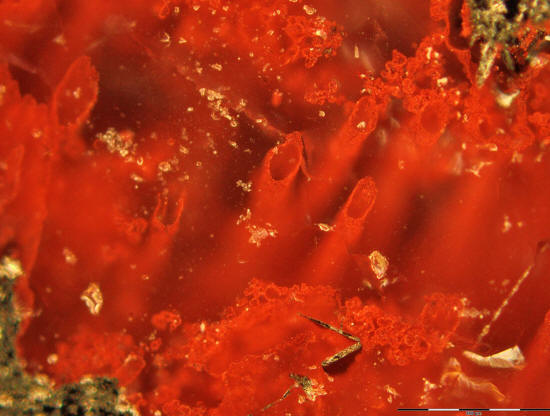|

by Neil C. Bhavsar
March 01,
2017
from Futurism
Website

In Brief
-
Researchers have discovered what they believe to be
fossils of microbes that existed 3.77 billion years
ago, which, if confirmed, would be the oldest fossil
evidence on record.
-
These
microbes would have lived when the Earth was very
young and very chaotic, so their confirmation would
force us to reconsider what we think of as the
conditions for life.
3,770,000,000
Years Ago
The
origin of life has long been contentiously debated, often
because researchers are trying to understand events that occurred
billions of years ago.
Adding to the debate is a
recent discovery from deep in the exotic landscape of
the Nuvvuagittuq (nuh-vu-ah-gi-took) belt in Canada where scientists
have uncovered fossils they believe to be 3.77 billion years old.
If they're right, that
would make their discovery the oldest fossil evidence on record.

Click above image to view full INFOGRAPHIC
Claims that speculate the age of ancient fossils always set the
science world ablaze, mainly because very old rocks often undergo
geological deformations.
Everything from erosion
to weathering can remove signs of life, making it highly unlikely
we'd find anything thousands, let alone billions, of years later.
However, lead
researcher Matthew
Dodd is confident that his team's Canadian discovery
will hold up to the scrutiny.
The straw-shaped
"microfossils" uncovered by the team were found in a part of Canada
that once was a
hydrothermal vent on the ocean floor.
The
microscopic microbes that created these fossils would have
germinated around the vents to take advantage of their volatile
chemistry to create fuel.
When the microbes died, iron in the water
would latch onto their decaying bodies, eventually replacing their
organic structures with stone that the researchers can now study.
After proper
analysis, the youngest estimate of the microbes is around 3.77
billion years. However, the microbes may be as old as 4.28
billion years - that's only about 260 million years after the
Earth was formed.
The research (Evidence
for Early Life in Earth's oldest Hydrothermal Vent Precipitates) is
published in the journal Nature.
Life, Aliens, and the
Pursuit of the Unknown
Our current
understanding of the origin of life on Earth is that it dates back
to
3.4 to 3.5 billion years ago.
The present
findings suggest that the first incidence of life occurred 300
million years sooner than that, so if the age of the microbe fossils
is verified, the implications would be tremendous.
In addition to the
findings by Dodd's team, the discovery of reportedly 3.7 billion
year old fossils in
Issua, Greenland is awaiting
verification as well.
Those fossils
indicated the existence of a photosynthetic bacteria, while Dodd's
team is suggesting their discovery is of a
chemosynthetic bacteria's
fossil.
The age and
apparent diversity of these organisms suggests a much more profound
outlook on the origin of life in the universe...
These
fossils would challenge our fundamental understanding of the
origin of life.
We would
have to revisit what we thought we knew about the potential
for organic matter to flourish during a time when the Earth
was bombarded
by asteroids, the environment was changing
radically every hundred years, and the planet's surface was
sodden with molten lava.
If life was
able to develop under those conditions, we're left with more
questions than answers.
What we
believed to be a steady process that required time and
caution might just be something more sporadic, which would
in turn suggest that life might be more of a cosmic
phenomenon than just an Earth-based one.
This could
change how we think about the potential for
life on other
planets, or
even Mars, which was
teeming with oceans and
warm 3.77 billion years ago.
Not finding life on the Red
Planet would tell us a lot, too, namely that life on Earth
is due to some fluke or a phenomenon 'unique' to our planet.
Now, all
that's left to do is wait to find out if these ancient
fossils are as ancient as their discoverers hope...
|



